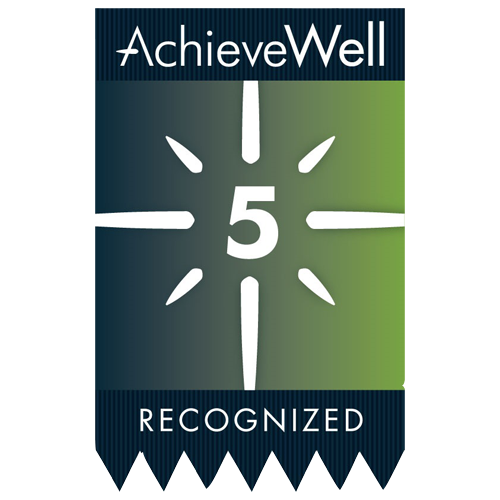March Compliance Recap
The President signed the Families First Coronavirus Response Act (FFCRA) into law. The Department of Labor (DOL) issued a bulletin regarding enforcement of the FFCRA. The President also signed the Coronavirus Aid, Relief, and Economic Security Act (CARES Act) into law.
The DOL issued frequently asked questions (FAQs) on providing leave under the FFCRA that have been updated multiple times since first being issued. The DOL also issued an employee’s rights notice that employers subject to the FFCRA are required to post and issued employee and employer fact sheets on the FFCRA.
The Internal Revenue Service (IRS) issued a notice regarding health savings account (HSA) qualified HDHP coverage of testing and treatment related to COVID-19 without meeting a minimum deductible. The IRS also issued a notice providing taxpayers with various filing and payment deadline extensions, including an extension for HSA contributions. Additionally, the IRS issued guidance on the emergency Family and Medical Leave Act (FMLA) leave and emergency paid sick leave tax credits under the FFCRA.
The U.S. Supreme Court announced that it will hear the court case challenging the Affordable Care Act’s (ACA’s) constitutionality. The Department of Health and Human Services (HHS) published the final 2021 actuarial value calculator and methodology. The DOL issued FAQs on the availability of traditional FMLA for COVID-19 and the Centers for Medicare and Medicaid Services (CMS) issued FAQs on essential health benefits and COVID-19.
UBA Updates
UBA released new advisors:
- The Coronavirus Aid, Relief, and Economic Security Act FFCRA Amendments and Benefits Provisions
- Coronavirus Aid, Relief, and Economic Security Act Paycheck Protection Program
- Families First Coronavirus Response Act
UBA updated, refreshed, or revised existing guidance: Health Savings Accounts: What You Need to Know
President Signs the Families First Coronavirus Response Act
On March 18, 2020, President Trump signed the Families First Coronavirus Response Act (FFCRA) in response to the spread of the 2019 Novel Coronavirus (COVID-19). The FFCRA is an economic stimulus plan that affects coverage and cost sharing for COVID-19 testing and provides expanded federal family and medical leave and a new federal paid sick leave law. The FFCRA also addresses other issues such as coverage and cost sharing for COVID-19 testing under Medicare and Medicaid, emergency grants to states for unemployment insurance, employer tax credits for compensation and amounts paid to maintain health coverage for employees who take leave under the FFCRA, and federal funding for various programs.
DOL Issues Non-enforcement Bulletin Regarding the FFCRA
The Department of Labor (DOL) issued a bulletin stating that it will not bring enforcement actions against any public or private employer for violations of the Families First Coronavirus Response Act (FFCRA) occurring within 30 days of the Act’s enactment, which is March 18, 2020, through April 17, 2020. For purposes of non-enforcement of violations, the employer must be acting “reasonably” and “in good faith” when the violations occurred and the following facts must be present:
- The employer remedies any violations, including by making all employees whole as soon as possible.
- The violations are not willful (the employer either knew or showed reckless disregard for the matter of whether the employer’s conduct was prohibited).
- The DOL receives a written commitment from the employer to comply with the FFCRA in the future.
President Signs the Coronavirus Aid, Relief, and Economic Security Act
In response to the spread of the 2019 Novel Coronavirus (COVID-19), President Trump signed the Coronavirus Aid, Relief, and Economic Security Act (CARES Act) into law on March 27, 2020. The CARES Act is the third phase in Congress’ response to COVID-19 following the Coronavirus Preparedness and Response Supplemental Appropriations Act, 2020 and the Families First Coronavirus Response Act (FFCRA). The roughly $2 trillion CARES Act provides emergency relief aimed to assist business, individuals, and hospitals during the period of public health emergency due to COVID-19. The CARES Act provides various benefits to individuals such as cash payments and increased unemployment benefits, as well as funding for various state and federal programs.
Read more about the CARES Act in our UBA Advisors “The Coronavirus Aid, Relief, and Economic Security Act FFCRA Amendments and Benefits Provisions” and “Coronavirus Aid, Relief, and Economic Security Act Paycheck Protection Program.”
DOL Issues FAQs and Fact Sheets on the FFCRA and the FFCRA Employee Rights Notice
The Department of Labor (DOL) issued frequently asked questions (FAQs) following the enactment of the Families First Coronavirus Response Act (FFCRA). The FAQs have been updated with additional questions and answers multiple times since first being issued. The FAQs provide additional guidance on emergency FMLA leave and emergency paid sick leave. The FAQs answer various questions such as how to count employees when determining whether an employer is subject to the leave laws, what type of records an employee must submit when seeking leave, and eligibility for the small employer exception from certain leave requirements. In addition to the FAQs, the DOL also issued employer requirements and employee rights fact sheets under the FFCRA.
The DOL also issued FAQs on the FFCRA Employee Rights Notice that employers must post by April 1, 2020. The FAQs provide guidance on issues such as where and how to post the notice when an employer’s workforce is teleworking and where to post the notice for employers with employees at multiple locations.
IRS Issues Notice on Testing and Treatment of COVID-19 and HDHPs
In response to the spread of the 2019 Novel Coronavirus (COVID-19), On March 11, 2020, the IRS issued a notice regarding HSA-qualified HDHPs coverage of testing and treatment related to COVID-19. Under the notice, health plans that otherwise qualify as HSA-eligible HDHPs will not lose that status solely because they cover the cost of testing for or treatment of COVID-19 before the plan’s minimum deductible has been met. The notice provides that vaccinations continue to be considered preventive care and can be paid for by the HDHP without first meeting a deductible.
Read more about HSA-qualified HDHPs.
IRS Extends Deadline for HSA Contributions
The Internal Revenue Service (IRS) issued a notice providing taxpayers with various filing and payment deadline extensions in response to the spread of the 2019 Novel Coronavirus (COVID-19). The notice extends the deadline for individuals to make health savings account (HSA) contributions from April 15, 2020, to July 15, 2020. The IRS released frequently asked questions regarding the various extensions.
IRS Issues Guidance on Emergency FMLA Leave and Emergency Paid Sick Leave Tax Credits
The Internal Revenue Service (IRS) issued Notice 2020-21 and frequently asked questions regarding implementation of employer tax credits under the Families First Coronavirus Response Act (FFCRA). The FFCRA provides for tax credits for each calendar quarter in an amount equal to 100 percent of the qualified sick leave wages and qualified family leave wages required to be paid under the FFCRA (or equivalent amounts for certain self-employed individuals). The tax credits apply to qualified sick leave wages and qualified family leave wages paid for the period from April 1, 2020, to December 31, 2020. The self-employment tax credit also applies for the period from April 1, 2020, to December 31, 2020.
Status of Court Case Challenging ACA Constitutionality
On March 2, 2020, the U.S. Supreme Court (Supreme Court) announced that it will hear the court case challenging the Affordable Care Act’s (ACA’s) constitutionality. Previously, the Supreme Court declined expedited review of the case.
As background, in 2018, 20 states filed a lawsuit asking the U.S. District for the Northern District of Texas (District Court) to strike down the ACA entirely. The lawsuit came after the U.S. Congress passed the Tax Cuts and Jobs Act of 2017 (TCJA) that reduced the individual mandate penalty to $0, starting in 2019.
On December 14, 2018, the District Court issued a declaratory order that the individual mandate is unconstitutional. The District Court found that the individual mandate is unconstitutional without the penalty and that the individual mandate is inseverable from the rest of the ACA. Because of its findings, the District Court declared that the individual mandate and the entire ACA – including its guaranteed issue and community rating provisions – are unconstitutional.
On December 18, 2019, the U.S. Court of Appeals for the Fifth Circuit (Appeals Court) held that the ACA’s individual mandate is unconstitutional. The Appeals Court is remanding the case to the District Court for additional analysis on whether the individual mandate can be severed from the ACA. The Appeals Court is also directing the District Court to consider the government’s new arguments regarding the relief that should be provided to the plaintiff states and the two individual plaintiffs in the case.
On January 3, 2020, the defendant state attorney generals and the U.S. House of Representatives asked the Supreme Court to hear an appeal of the Appeals court decision. The defendants also requested an expedited briefing schedule for the case to be heard in 2020. On January 21, 2020, the Supreme Court denied expedited review of the case.
Read more about the status of the court case.
HHS Publishes Final 2021 Actuarial Value Calculator and Methodology
The Department of Health and Human Services (HHS) published the Final 2021 Actuarial Value (AV) Calculator Methodology. The Final 2021 AV Calculator Methodology also contains the 2021 AV Calculator. HHS issues this guidance annually to help issuers of non-grandfathered health insurance plans, offered in the individual and small group markets, to determine the levels of coverage of their plans (for example, AV of 60 percent for bronze level, AV of 70 percent for silver level, AV of 80 percent for gold level, and AV of 90 percent for platinum level).
A few changes were made to the 2021 AV Calculator compared to the 2020 AV Calculator. For the 2021 AV Calculator, HHS updated the claims data underlying the continuance tables that represent the standard population. For the 2021 AV Calculator, HHS updated the trend factors used to trend spending forward year-to-year from 2017 to 2021. HHS projected spending forward from 2017 to 2018 at an annual rate of 3.25 percent for medical spending and 9 percent for drug spending. Each additional year from 2018 to 2021 is projected at 5.4 percent for medical spending and 8.7 percent for drug spending. Also, the AV Calculator estimate for the annual limit on cost-sharing has been increased to $8,700 for 2020. HHS also updated the continuance tables’ structure to use $100 spending buckets within the range of $0-$15,000. HHS also added a “Percent of Enrollees” column to the AV Calculator to provide accurate weighting for each spending bucket. Finally, HHS updated the AV Calculator algorithm to more accurately calculate spending during the deductible phase for plans with benefits that are subject the deductible and have a copay.
DOL Issues FAQs on Traditional FMLA and COVID-19
Prior to the President signing the Families First Coronavirus Response Act, the Department of Labor (DOL) issued frequently asked questions (FAQs) regarding employee eligibility for traditional Family and Medical Leave Act (FMLA) leave due to an employee contracting the flu (including pandemic influenza) or caring for ill family members. The FAQs provide that if the flu is considered a serious health condition under FMLA, the employee is entitled to FMLA leave. However, an employee would not be eligible for traditional FMLA leave for the purpose of avoiding exposure to the flu or taking leave due to a child being dismissed from school or child care.
The FAQs contain additional information on topics such as leave policy considerations and amending leave policies, laying off employees while retaining others, and requiring medical certification.
CMS Issues FAQs on EHBs and COVID-19
The Centers for Medicare and Medicaid Services (CMS) issued frequently asked questions (FAQs) addressing whether COVID-19 diagnosis and treatment are considered essential health benefits (EHBs). EHBs must be covered by non-grandfathered individual and fully insured small group health plans. The FAQs provide that EHBs generally include coverage for the diagnosis and treatment of COVID-19. Additionally, medically necessary isolation and quarantine required by and under the supervision of a medical provider during a hospital admission are generally covered as EHBs. The FAQs also provide that while a COVID-19 vaccine does not currently exist, vaccines that have been recommended by the Advisory Committee on Immunization Practices must be covered as EHBs without cost-sharing, and before meeting any applicable deductible. If a plan does not cover a recommended vaccine on the plan’s formulary, enrollees may use the plan’s drug exceptions process to request that the vaccine be covered under their plan.
Visit our blog for past compliance updates
Question of the Month
| Question: | Has the Internal Revenue Service (IRS) provided any guidance on cafeteria plan permitted election change events to allow group health plan participants to make mid-year election changes due to COVID-19? |
| Answer: | Currently, the IRS has not provided any guidance on allowing group health plan participants to make mid-year election changes beyond those recognized in the cafeteria plan regulations and adopted in the employer’s plan documents. |





